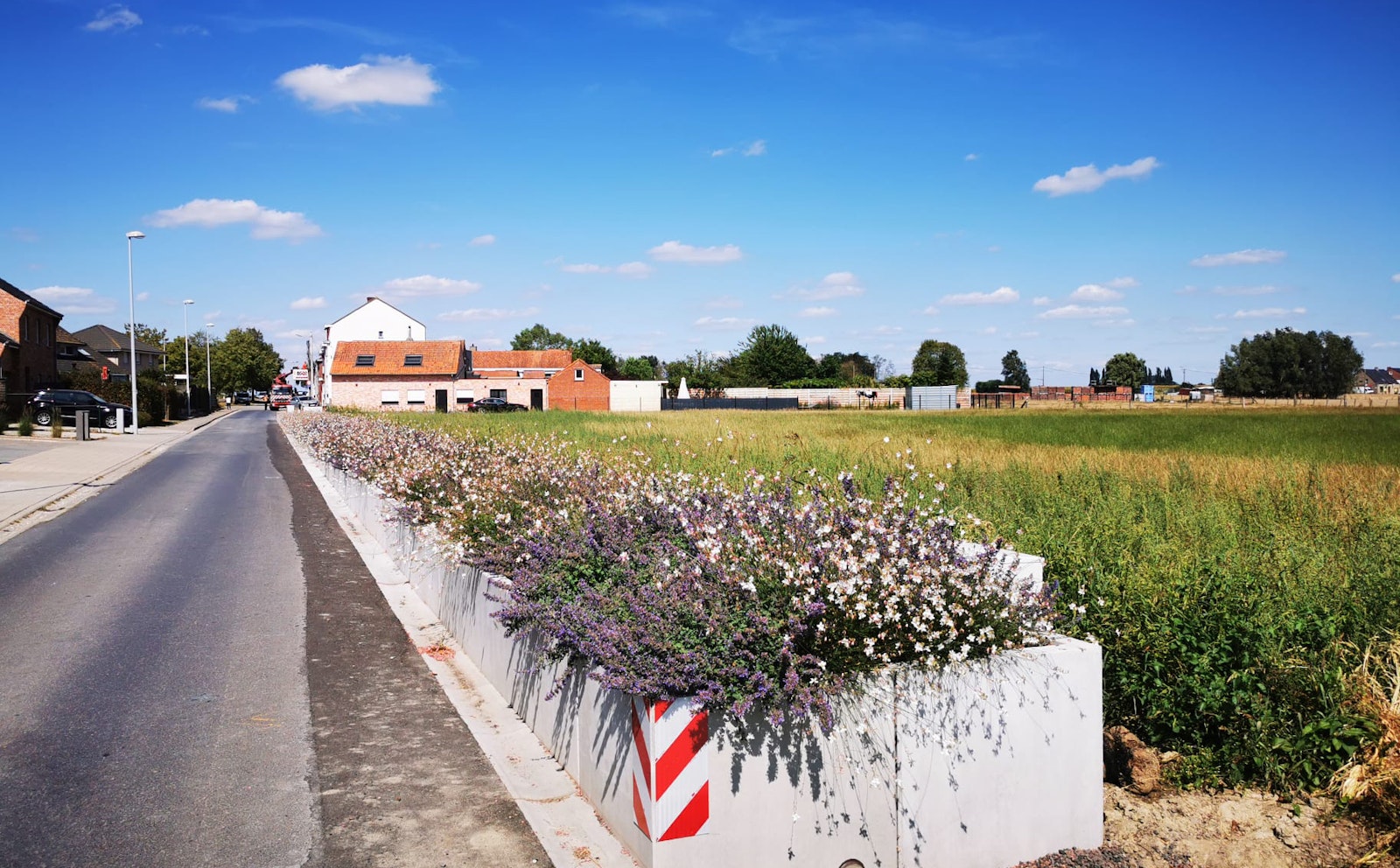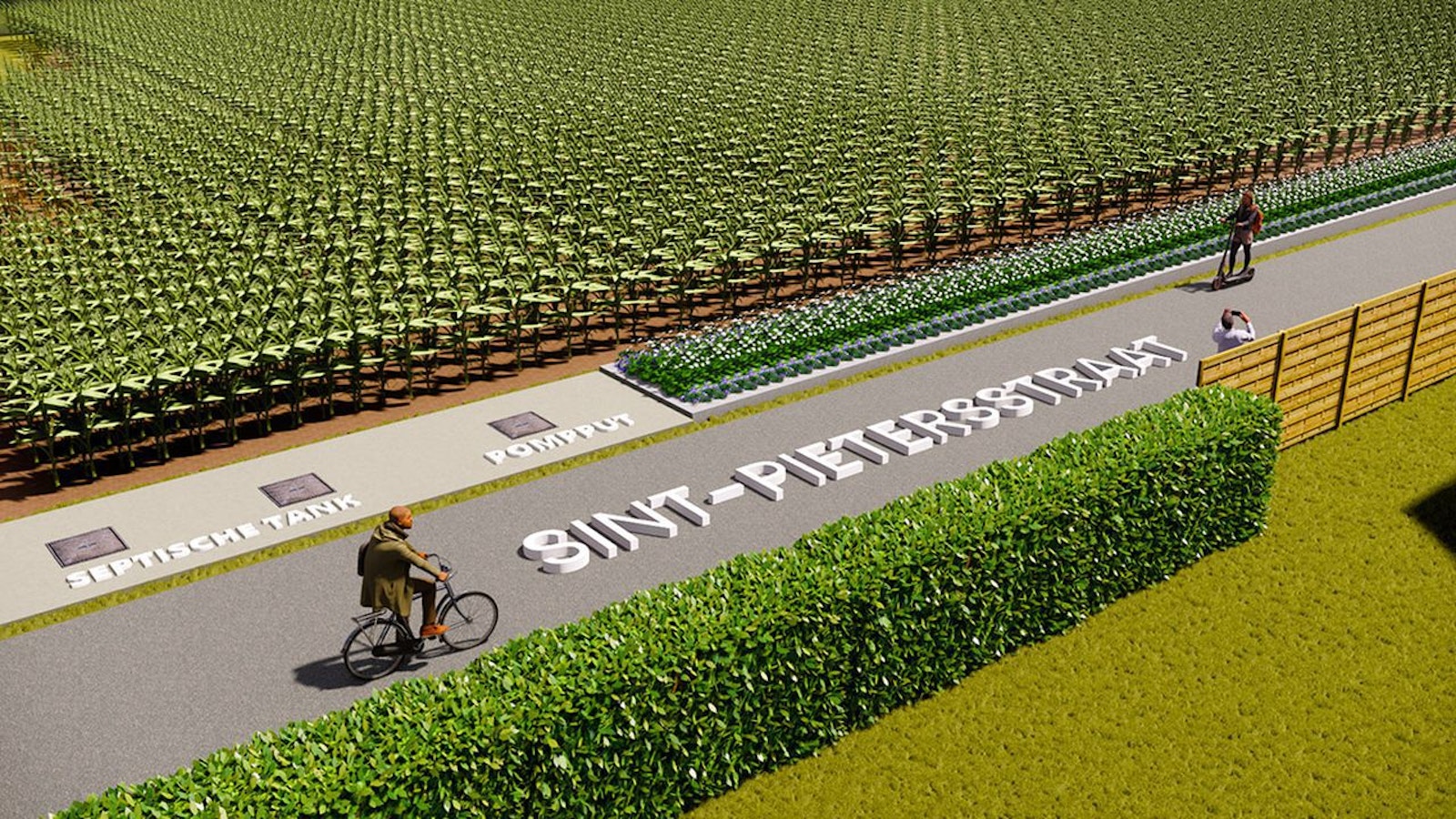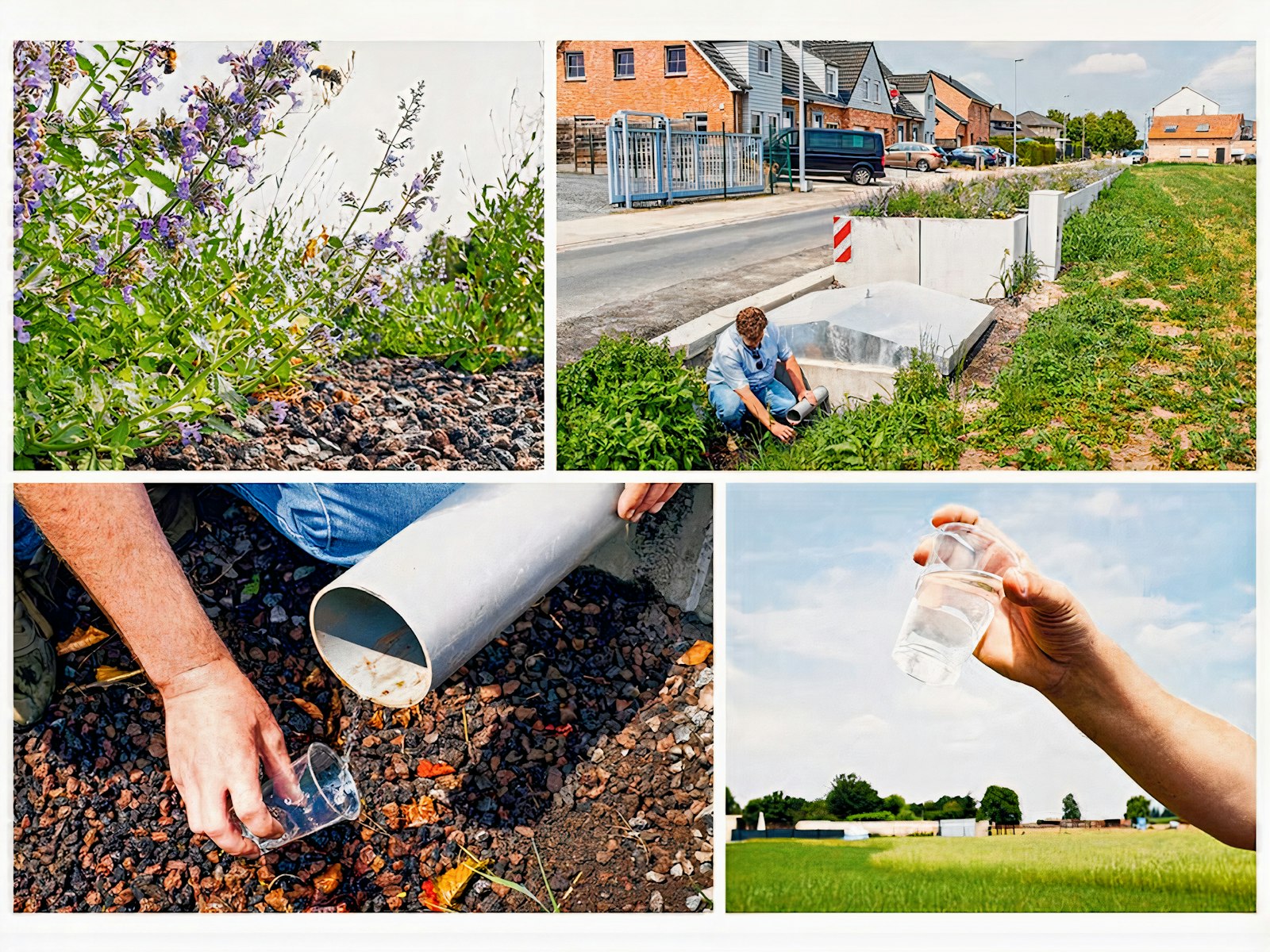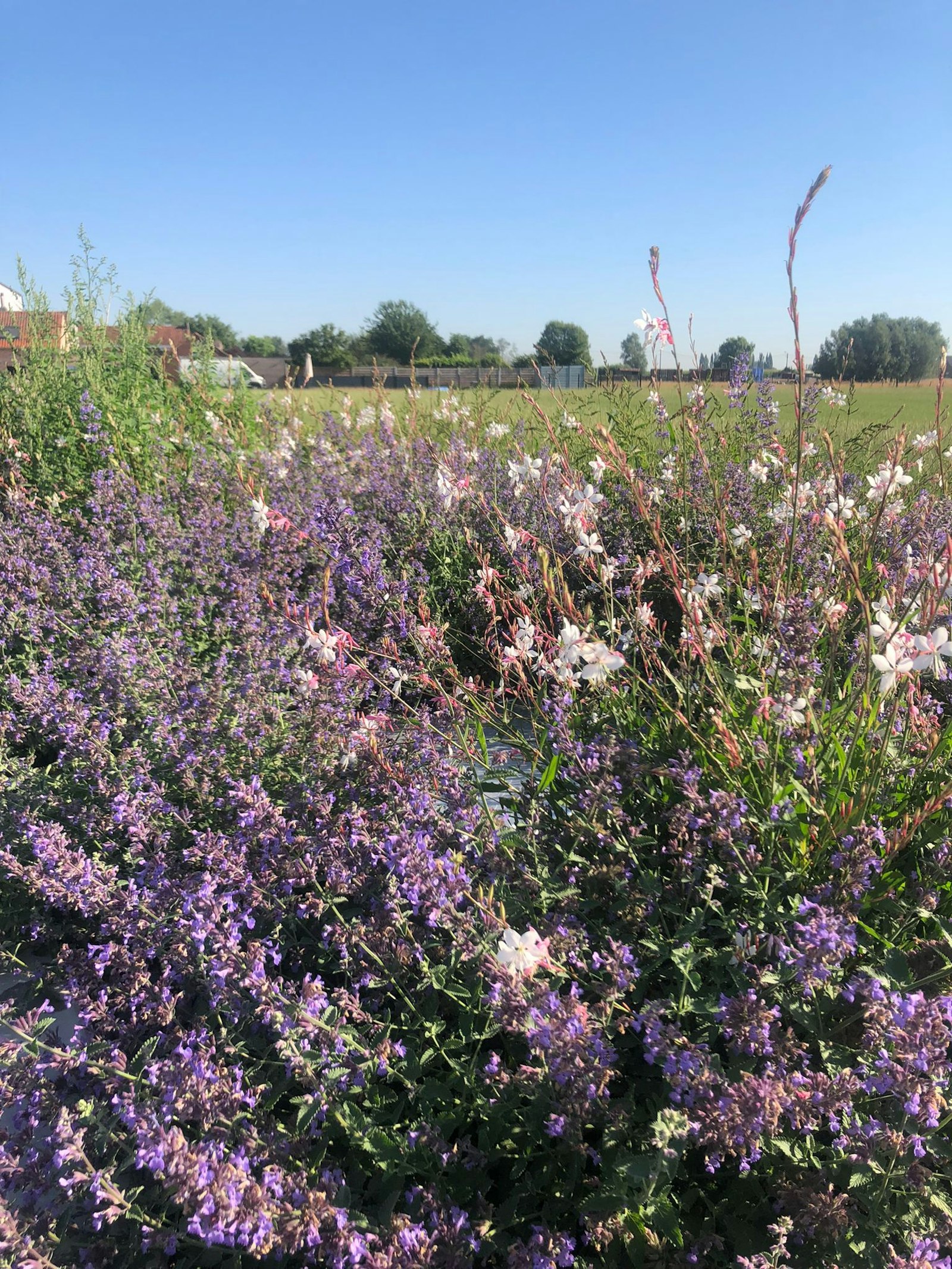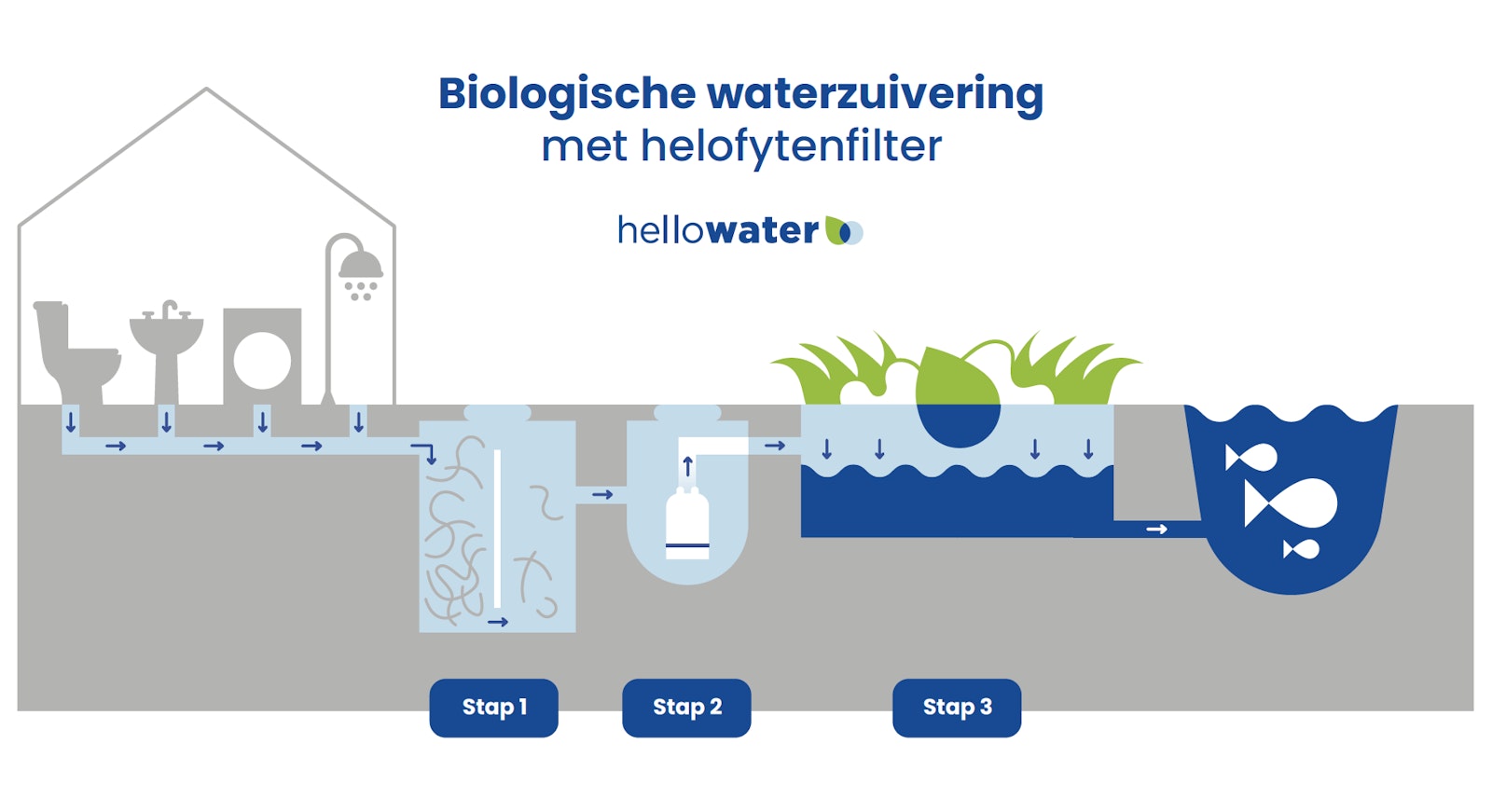de Velde
Ledegem wordt Leaudegem!
Ledegem becomes Leaudegem! is an innovative water purification system as a sustainable alternative to sewerage.
The Ledegem becomes Leaudegem! project by HelloWater includes an innovative water purification system that serves as a sustainable alternative to sewerage. Smart coupling between sediment tanks, pumps, bacteria and plants ensures purification of waste water in a natural manner. This project shows that an alternative, fast and sustainable solution can be offered for water purification in the outlying area. Through this project, the municipality of Ledegem wants to focus on connection in the fight against desiccation, establishing sanitation in the outlying area and improving surface water quality and biodiversity.
The jury on Ledegem becomes Leaudegem!:
“This project has rethought the entire water issue from a local context. It offers a solution, respecting nature and habitat.”
What does this award mean to you?
Wouter Igodt (HelloWater): I was hugely touched by the recognition. It has also taught me that perseverance pays off. I have faced some headwinds in the past in developing and refining the idea of water purification with nature.
How did the idea for this project come about?
Wouter Igodt: This idea was born out of dissatisfaction with the actual situation in Flanders of stagnant water quality. Listening to the concerns of policy, the obstacles in the field and the discontent among people about these stinking streams provided a trigger. Step by step, from a real hands-on mentality, a “hands-on future” arose! There are many layers to this project, where water care is primary, but with sustainability also being understood very broadly.
What makes the project so special?
Wouter Igodt: This project shows that three key areas of strength can be reconciled, namely innovation, creativity and professionalism. It highlights the connection and challenge in the techniques used. We were able to convey it in a communicative and participatory way in our HelloWater language to the residents of the street and beyond. Whereas previously people could literally smell the canal, the solution has become one that can be looked at with pride. Or how residents’ meetings really don’t have to be boring.
How does it contribute to a better world?
Wouter Igodt: From an economic perspective, this technology is more than 50% cheaper than sewage investment in the outlying areas. The water can remain on site at good quality, under the watchful eye of a smart monitoring system. Biodiversity is the big local winner in times of drought. Not to mention the impact on our carbon emissions because this type of construction is so much easier to implement. Low impact becomes high impact! In Flanders, there is room for ten to fifteen thousand of these installations, which can save hundreds of thousands of tonnes of CO2.
